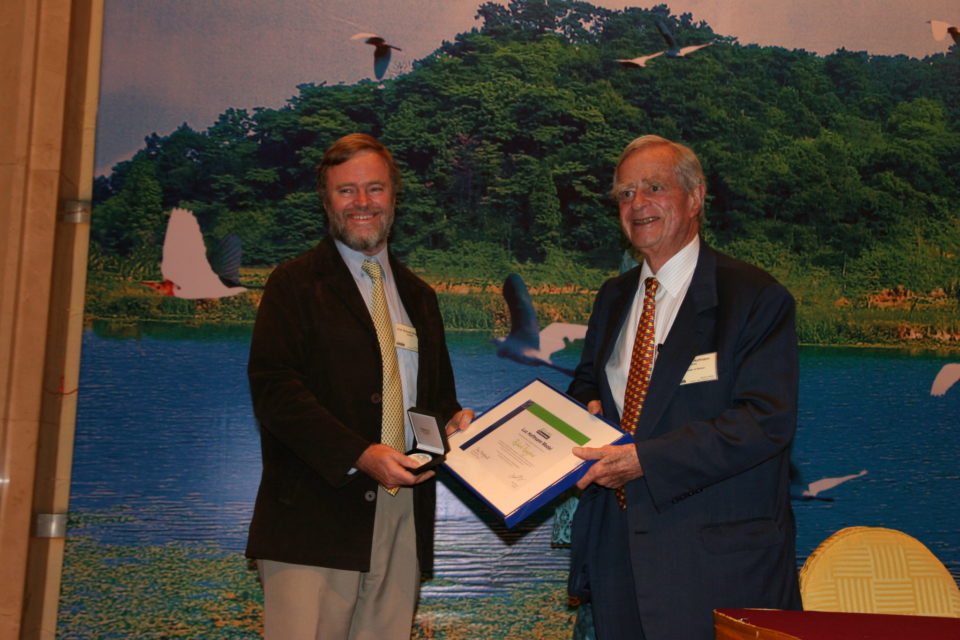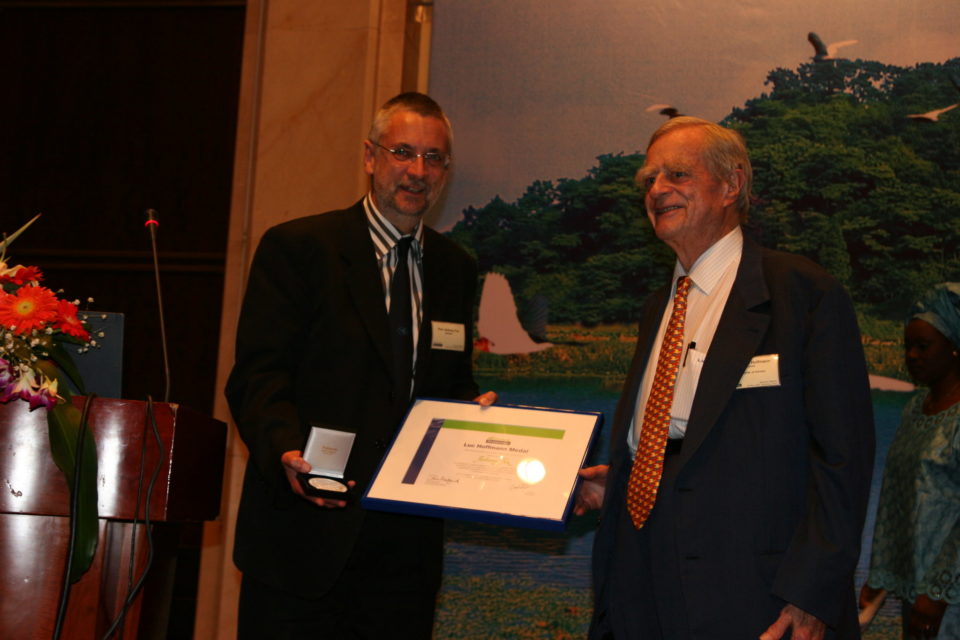2007: Richard Kingsford and Tony Fox
Richard Kingsford

Dr Richard Kingsford received the Luc Hoffmann Medal for excellence in wetland research and management and for outstanding communication. Dr Kingford’s research focuses on the key threats to wetlands and their conservation. Most of his wetland research has been on parts of Australia that are not well known. The research on wetlands has contributed to a better understanding of the importance of river flows for wetlands and their biodiversity. This has led to debates about water resource management with significant outcomes for wetland management. Until recently, there has been little knowledge of the extent of wetlands in Australia but Dr Kingsford’s research has provided a sound basis for wetland conservation, planning and management over a large part of the continent.
All of Dr Kingsford’s research focuses on strong communication. This takes the form of scientific seminars, workshops and discussion of wetland conservation in the media. Dr Kingsford has had a long record of providing features on wetlands in the mainstream media in Australia: print, radio and television. This has raised the profile of wetlands in Australia and resulted in difficult natural resource decisions being made for the protection of wetlands because of community support.
Dr Kingsford’s work has produced real changes in wetland management. The 600 km long Paroo River remains the only free-flowing river in the Murray-Darling Basin after the Premiers of Queensland and New South Wales signed a historic agreement in 2003. Dr Kingsford’s leadership and commitment in conservation, science, media and partnerships were the key. The scientific research of established the conservation importance of wetlands on the Paroo River was instrumental in the acquisitions of Currawinya lakes and the Paroo-Darling National Parks. Also, the nomination of the Currawinya National Park as a wetland of international importance primarily used the waterbird research of Dr Kingsford. In the mid 1990s the river was threatened by water resource development. Dr Kingsford organised and ran a historic scientific workshop with the people of the river, on the banks of the river, producing a book that commanded national attention. He then actively shepherded the historic agreement through the Governments of Queensland and New South Wales.
Tony Fox

Tony Fox was awarded the Luc Hoffmann Medal for excellence in wetland research, especially in waterbird ecology and physiology, and for outstanding communications, teamwork and collaboration worldwide for the active promotion of wetland conservation and wise use.
Professor Anthony Fox lives and breathes science. Born in 1956 in Surrey, England his career started in Wales as a young peatland ecologist and has lead him to his current position as Professor in Wetland Ecology at the National Environmental Research Institute in Denmark. Throughout his career he has demonstrated excellence in scientific research and he has been amazingly productive. Moreover, most of his research has had wider practical utility for those more directly involved in the conservation process. Indeed to these practioners, he has always been extraordinarily generous in giving his assistance and expert advice.
Tony has always given emphasis to the communication of research to others, which he sees as a central responsibility for researchers. In his busy schedule, also being a father of two, he has created time to give regular talks and presentations to many amateur natural history societies and birdwatching clubs. His lively presentations helped stimulate the activities of these volunteers through his infectious enthusiasm.
Tony has also long been a supporter of Wetlands International and its Specialist Groups, and has had active involvement with the International Wader Study Group (WSG), the Seaduck Specialist Group, and especially the Goose Specialist Group.
Tony has been able to encompass both the deep specialisation of his life-long fascination with Greenland White-fronted Geese (for which he was awarded a DSc by the University of Copenhagen), whilst always being open to new ideas, avenues of thinking and people. However the common theme that links all his work is wetland ecology.
One of Tony’s outstanding qualities as a researcher is his extraordinary networking abilities. Tony has worked with others all over the boreal and arctic areas of the Northern Hemisphere. Of particular note is Tony’s strong support for, and mentoring of, students and other younger researchers in whose work he has always taken the greatest interest. His quiet support and guidance has been highly motivating for all of those who have had the privilege of working with Tony.
